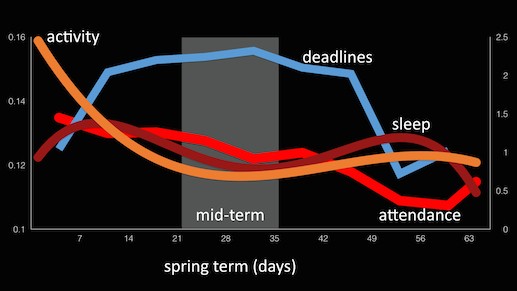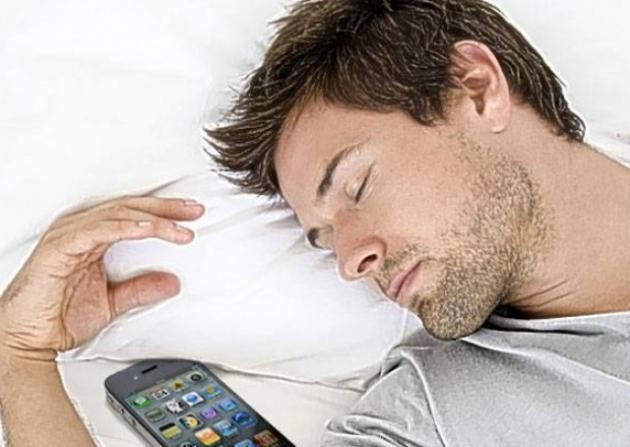
- Fanglin ChenPhD Student at Carnegie Mellon University
Hey! I am Fanglin, a PhD Student at HCII, Carnegie Mellon University. My research focus is in Ubiquitous Computing, First-Person Perspective Sensing and Life-logging technologies. Feel free to drop me a line if you are interested in my work. - Experience [CV]
- Publication [Google Scholar]
 StudentLife: Assessing Mental Health, Academic Performance and Behavioral Trends of College Students Using Smartphones
StudentLife: Assessing Mental Health, Academic Performance and Behavioral Trends of College Students Using SmartphonesThe StudentLife continuous sensing app assesses the day-today and week-by-week impact of workload on stress, sleep,
activity, mood, sociability, mental well-being and academic
performance of a single class of 48 students across a 10 week
term at Dartmouth College using Android phones. Results
from the StudentLife study show a number of significant correlations between the automatic objective sensor data from
smartphones and mental health and educational outcomes of
the student body.
 My Smartphone Knows I am Hungry
My Smartphone Knows I am HungryWe use inferred behavioral data and location history on smartphones to predict if you are going to eat or not in the near future. These predictors could serve as a basis for future eating trackers that work unobtrusively in the background of your phone rather than relying on burdensome user input.
Carsafe App: Alerting Drowsy and Distracted Drivers Using Dual Cameras on SmartphonesWe present CarSafe, a new driver safety app for Android phones that detects and alerts drivers to dangerous driving conditions and behavior. It uses computer vision and machine learning algorithms on the phone to monitor and detect whether the driver is tired or distracted using the front-facing camera while at the same time tracking road conditions using the rear-facing camera.
 Unobtrusive Sleep Monitoring Using Smartphones
Unobtrusive Sleep Monitoring Using SmartphonesWe present a radically different approach for measuring sleep duration based on a novel best effort sleep (BES) model. BES infers sleep using smartphones in a completely unobtrusive way - that is, the user is completely removed from the monitoring process and does not interact with the phone beyond normal user behavior. A sensor-based inference
algorithm predicts sleep duration by exploiting a collection ofsoft hints that tie sleep duration to various smartphone usagepatterns (e.g., the time and length of smartphone usage orrecharge events) and environmental observations (e.g., prolonged silence and darkness).






